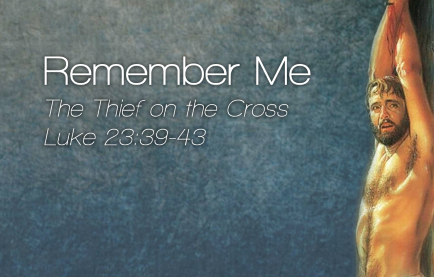“Truly, I say to you, today you will be with me in paradise.”
Those words—spoken by Jesus to a dying man—have comforted many and confused just as many. For centuries, this single verse has launched sermons, sparked debates, and shaped doctrines that affect how people view salvation itself.
But what if this powerful statement has been misunderstood—not because of what Jesus said, but because of where a translator decided to place a single comma?
A Verse That Shaped Eternity
Luke 23:43 is among the most frequently cited scriptures when it comes to proving that believers go directly to heaven when they die. The passage is often used to:
- Justify the belief that salvation can be granted in a last-minute deathbed confession.
- Argue that baptism, faithfulness, or works aren’t necessary for salvation.
- Support the idea of immediate entry into heaven after death.
From this single statement, entire doctrines have been built. For many, it’s become the go-to response to complex questions about salvation, judgment, and the afterlife.
But there’s a problem: the English punctuation.
The Problem with the Comma
Ancient Greek manuscripts didn’t have punctuation marks like modern English. There were no commas to separate clauses, no quotation marks to delineate speech, and often no spaces between words. Translators, interpreting the text through their own theological lens, had to make choices.
In the Greek, Luke 23:43 reads: Amen soi legō sēmeron met’ emou esē en tō paradeisō.
Word for word: “Truly I say to you today with me you will be in paradise.”
Depending on where you place the comma, the meaning changes:
- “Truly, I say to you, today you will be with me in paradise.”
- “Truly I say to you today, you will be with me in paradise.”
One version suggests immediate reward. The other promises future fulfillment.
But Was Jesus Even in Paradise That Day?
According to Scripture, Jesus Himself did not ascend to the Father until days after His death. In John 20:17, speaking to Mary after His resurrection, Jesus says, “Do not cling to me, for I have not yet ascended to the Father.”
Furthermore, Jesus was in the grave for “three days and three nights” (Matthew 12:40). If Jesus wasn’t in paradise that day, how could the thief be?
The word “paradise” also doesn’t necessarily refer to heaven as most assume. Biblically, it can refer to the future restored Eden—a metaphor for the Kingdom of God (Revelation 2:7; 2 Corinthians 12:4). In that context, Jesus was promising the thief resurrection into His future Kingdom, not an immediate escape to heaven.
A Pattern of Assumptions
Luke 23:43 isn’t the only place where translation choices have shaped theology:
- Gehenna (a literal valley outside Jerusalem used metaphorically by Jesus) was translated as “hell,” leading to the doctrine of eternal torment.
- Nephesh in Hebrew means “living being,” but is often translated as “soul” with the assumption of an immortal, conscious entity.
- Words like “eternal” or “forever” come from aionios, which can also mean “age-lasting,” yet are used to support the idea of unending torment.
- Ekklesia, meaning “called-out assembly,” was translated as “church,” contributing to institutionalized religion rather than a called-out body of believers.
Each of these choices, like the comma in Luke 23:43, stems from interpretation rather than linguistic necessity.
The Broader Debate—and Why It Matters
Some argue that the thief was under the old covenant, so modern Christian expectations don’t apply. Others say he is the exception not having been baptized or had some hidden prior faith. But these are side debates.
The deeper concern is how this passage is used to prop up a version of the gospel where death is a narrow gate to one of two final destinations—immediate bliss or eternal torment.
This belief is comforting until a loved one dies without “accepting Jesus.” In those moments, even the most confident believers face overwhelming grief. The weight of that doctrine can become unbearable when applied personally.
The Real Beauty of the Moment
What truly matters in the thief’s moment with Christ isn’t where he went, but what he believed:
- He acknowledged his guilt.
- He recognized Jesus as King.
- He asked to be remembered when Jesus would come into His Kingdom.
That last part is often overlooked. The thief didn’t ask to go to heaven—he asked to be remembered when Jesus would come into His Kingdom. He had a future-focused hope. And Jesus affirmed it.
Faith in the Right Kingdom
The thief’s moment of clarity wasn’t about stumbling upon a loophole to heaven. It was a glimpse into a much greater promise—a coming Kingdom, a restored world, a place where mercy and justice meet.
Perhaps the real tragedy isn’t the mistranslated comma, but the theology that sprang from it—a theology where salvation is reduced to timing and belief is reduced to a magic phrase.
But if we read carefully, we see something better: the thief was given hope not because of timing, ritual, or punctuation, but because he believed in the King who would return.
And in that promise, there is room not only for the thief—but for all of us.
Ryan Welsh


